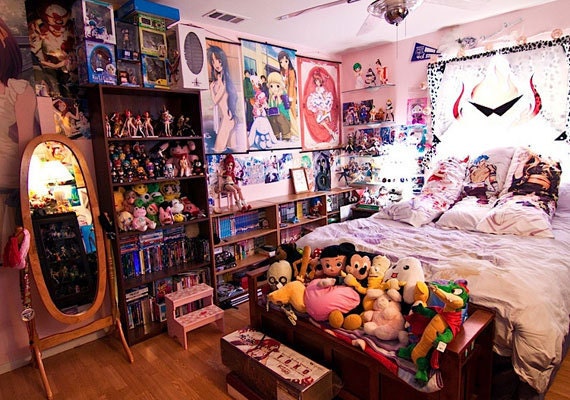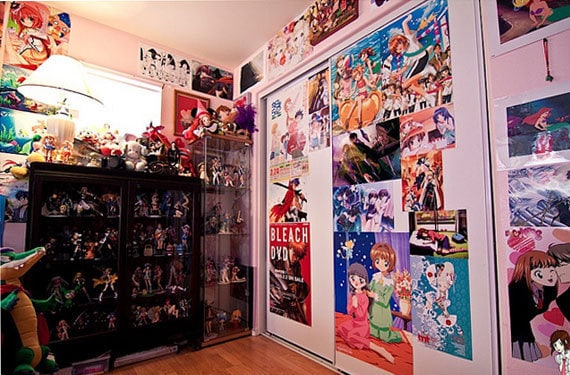In Japan, pop culture junkies challenge the limits of social acceptance through their carefully curated lairs.

Some say that once you acquire three of any one thing, its a collection. But what if that collection consumes an entire room? In Japan, such a voracious collector might be referred to as an otaku, a person who obsesses over particular forms of pop culture, like anime, manga (Japanese comic books) and video games. These collectors are often dismissed as geeks who need an intervention. While studying for his PhD at the University of Tokyo, Patrick Galbraith deviated from the standard academic fare to study otaku and their perceived reputation. His recent book, Otaku Spaces, features collectors in situ, presenting their lairs of ultimate fandom. Mass media has shaped the image of otaku, drawing a distinct line between what's acceptable and what pushes past the brink of obsession. While young female otaku are admired as fervent collectors, men are often portrayed as fetishist deviants. With his book, Galbraith wanted to go beyond the stereotypes to reveal relatable people. "I felt that the best way to intervene in the otaku discourse was to focus on individuals," says Galbraith in an interview with Neopjaponisme. "The more you get to know the people in the book, the less you see them as weird 'others' who are unknowable and unapproachable." For the non-otaku, Galbraith's photographs might be unsettling. The images in his book show adults surrounded by shelves of trinkets and stuffed animals, mixed with figurines and endless stacks of comic books. Otaku appear to suffer from a Peter Pan-like syndrome, adults indulging a childlike, collect-them-all attitude. "They take their engagements beyond the limits of common sense, acceptability or normativity, to what is considered the extreme or excessive," says Galbraith. "Otaku are unable or unwilling to relate to others as a result of indulgences in certain consumption and play activities."

But are otaku really outsiders? As pop culture junkies, they are experts on the most pervasive forms of entertainment. Galbraith feels that otaku are a sort of hybrid: "Lawrence Eng has argued that otaku are 'reluctant insiders,' or those who are part of the majority, mainstream, or middle class but feel alienated by their very inclusion in that larger group." To break away from accepted societal behavior, otaku consume pop culture in an unexpected, obsessive manner. Despite being marginalized, Japan's super-collectors aren't just a lonely few; Galbraith's book claims that otaku spend $2.5 billion a year on their collections, making them highly valued consumers. But the connotations of otaku are constantly in flux, changing over time through media portrayals. "There are not enough pages in the world to get through the complexity," Galbraith says. "And unfortunately there is still a lingering polarization of the otaku image into good and bad." As adults, many of us have collections, whether its hardback books or glass figurines. When does a collection push past the boundaries of what we consider "normal"?



